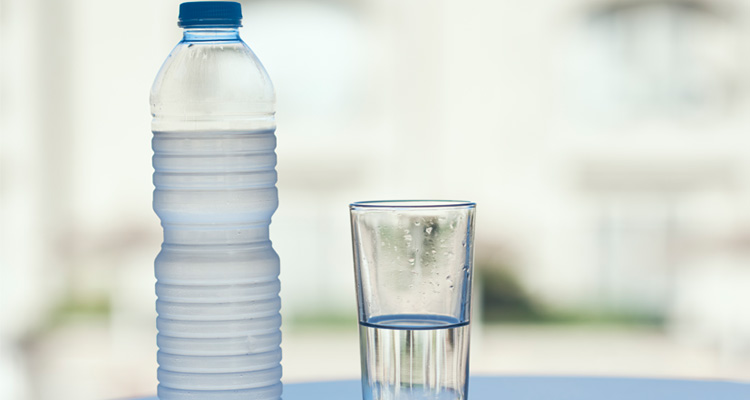(Scene: Linda pulls the red wagon containing Plant along a major street. She stops to pick up the litter. Plant views each trash deposit into the wagon with increasing distaste.)
Plant: Yuck. My bottom leaves keep getting dirtier from the litter you’re throwing in my wagon. I am sharing my vehicular transportation with trash while thinking about the human population of Earth. A few walks ago, you told me it was 8 billion-plus. Can Earth support that many people?
Linda: I’ll wipe your leaves clean—there. All done. But I haven’t ever heard of counting time in walks.
P: Just because you did not think of it does not mean the idea is not relevant. Moving on: How. Many. People. Can. Earth. Reasonably. Support?
L: Eight billion-plus is a lot of people.
P: You are stalling.
L: “Support” means having shelter, clean water, nutrition, sanitation, reasonable temperatures.
P: You do not know. Focus on just one element in the list to help your tiny mind.
L (frowning): You seem unusually irritable—you usually like walks. Anyway, I did some reading on clean water. Humans need just under a gallon per day biologically.
P: Regarding irritability, read the room. Water from out of the tap or from other sources?
L: Both. The EPA stringently regulates public tap water from city sources. A municipal water treatment plant purifies city water to make sure it’s safe to drink.
P: How much does tap water cost?
L: About $0.005—half a penny — per gallon.
P: Water not coming out of a municipal tap comes from where?
L: Private water sources like spring water, wells, cisterns. Plant, watch out!
P: Control your trash-flinging, please. You missed me by a leaf-thickness with that flattened, nasty-looking water bottle.
L: Sorry, sorry, I wasn’t aiming at you, Plant.
P: So, private water sources are regulated by whom?
L: Sometimes by the homeowner, sometimes nobody at all. It’s up to the owner to test it.
P (aghast): Nobody regulates private water sources?
L: For example, people assume spring water comes from deep groundwater, well cleansed by trickling deep into the earth and staying there a long time.
P: And?
L: Sometimes spring water is not deep ground water but rather is just surface water that’s run into the ground and has come back up and out again—it may be contaminated.
P: The trash is piling up in my wagon. Contaminated, like from runoff or flooding?
L: We’re multitasking by cleaning up curb trash. Contamination comes from multiple sources. One study in Appalachia suggested that 80% of spring water contained E. coli or coliforms–fecal contaminants–that make people sick. If water isn’t tested, who knows how clean it is?
P: Are there other water sources?
L: Bottled water, for example. Regulated by the FDA.
P: Do many people drink bottled water?
L: Yes. But single-serving bottled water costs almost 2,000 times more than the same amount of tap water. I checked the math. First, you convert the cost per hundred cubic feet of water.
P: I am astounded by that number. DO NOT rehash the calculations.
L: I was astounded, too. Then there’s the disposal problem for single-use plastic water bottles. Some countries ban them.
P: Ugh. I see several disgusting plastic water bottles in this wagon trash.
L: People recycle about 20% of single-use bottles. About 80% go into landfills, litter, or oceans—think floating trash islands. Some degrade into microplastics…
P: …Which are…?
L: …tiny bits of plastic that can cause health problems in seafood, animals, and us.
P: Like what health problems?
L: Contributing to inflammation, disrupting endocrine systems, embedding in intestines, kidneys, liver. About 93% of bottles sampled in multiple countries had microplastics in them.
P: Worrisome. What kind of water do you pour on me?
L: You drink what we drink and cook with: municipal tap water with extra filtering through a pitcher-type filtration system.
P: I like discussing problems, even though you do not have answers other than throwing street trash in my wagon.
L: I like talking with you, too. I’ll continue to filter your water and recycle the trash, but please rein in the cranky comments.
P: Not on your life. If you had to ride nestled in trash, you would be irritated, too.
Author Note: Plant and Linda Lemery llemery@gmail.com, thankful for having clean drinking water, wish readers a Happy Thanksgiving. The authors thank Steve Lemery for finding resources (Family Recipes, Water Trouble and “Peerless City,” Inside Appalachia,
https://www.npr.org/podcasts/381443598/inside-appalachia, September 04, 2023; Is Bottled or Tap Water Better for Your Health? https://www.healthline.com/nutrition/tap-water-vs-bottled-water#recommendation; both last accessed 09.07.2023) to help support Linda’s contributions to this Plant conversation.






